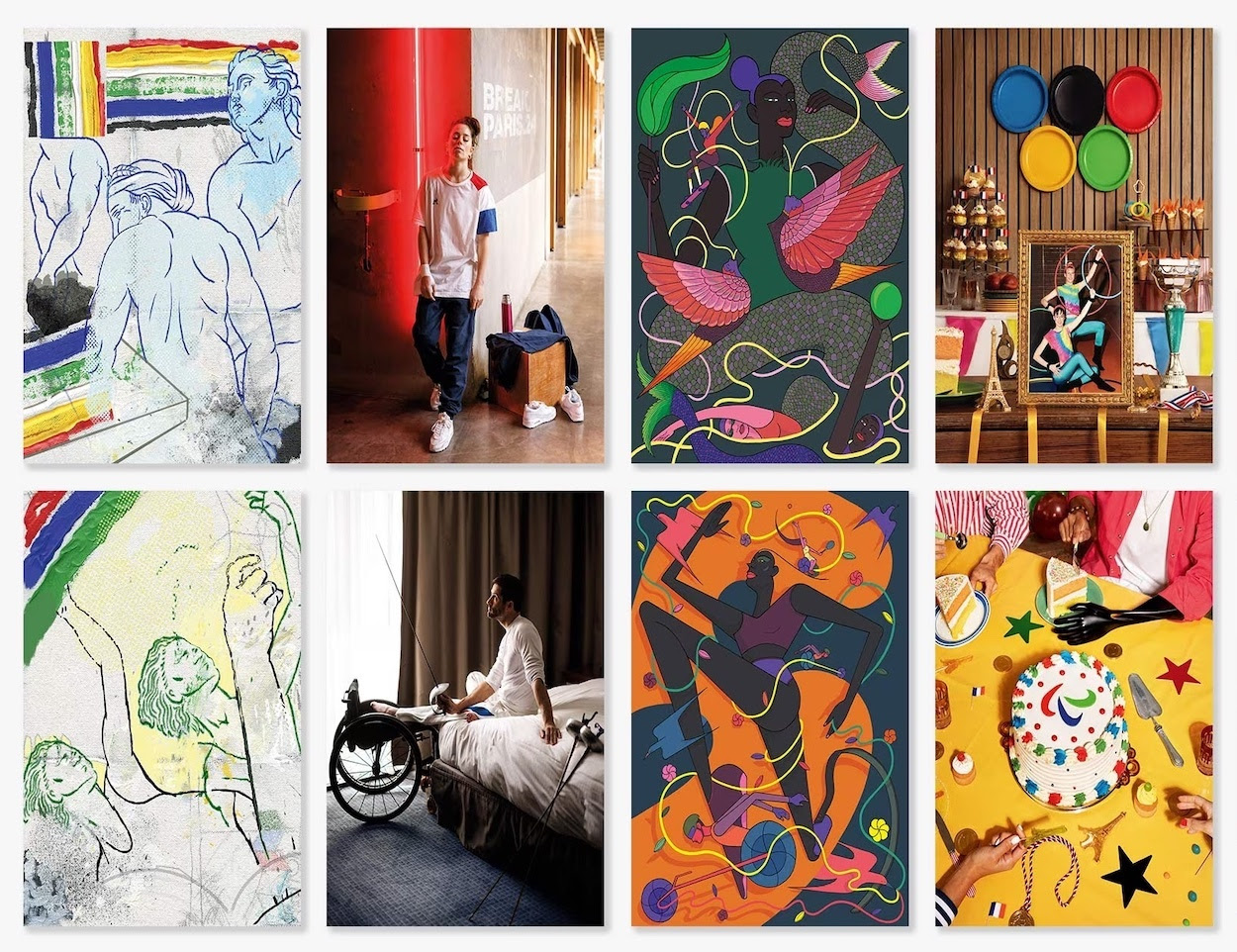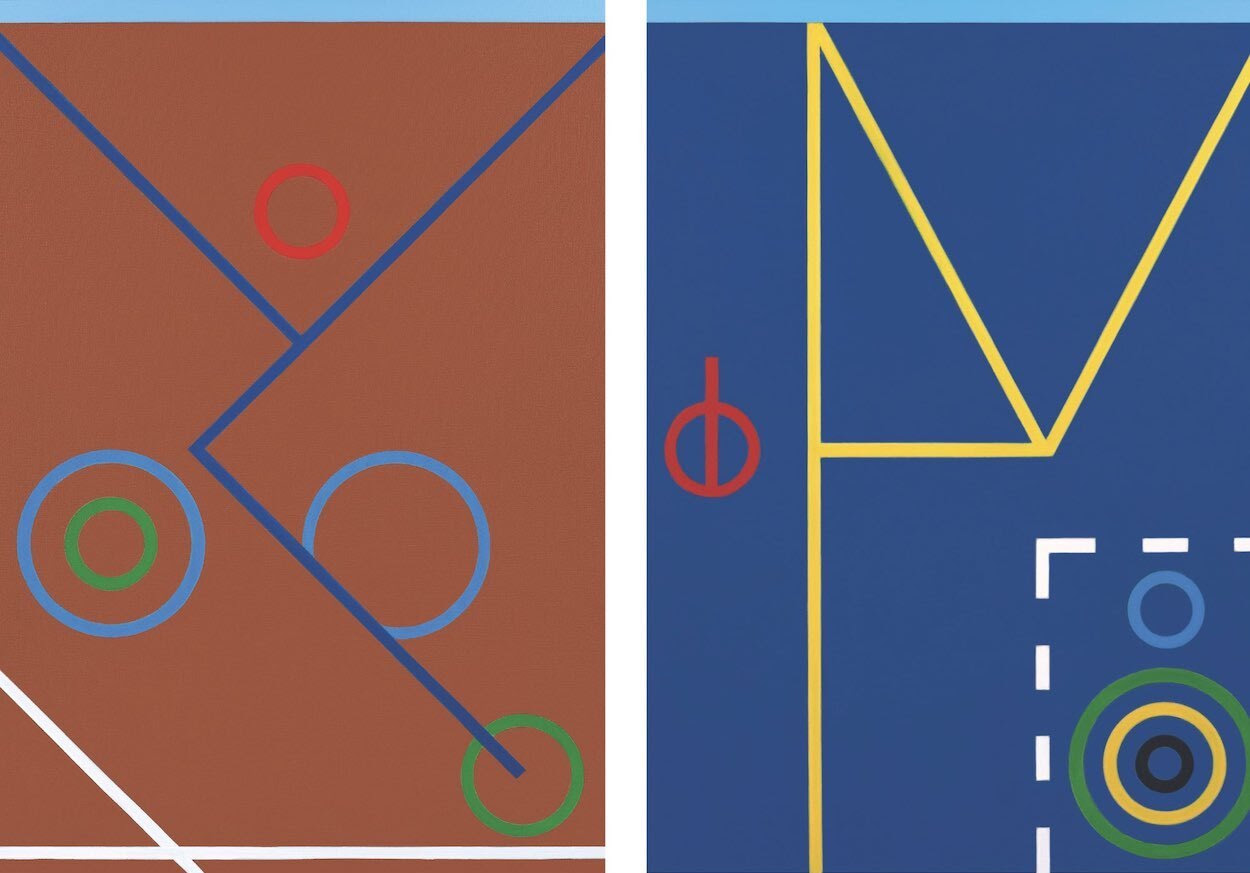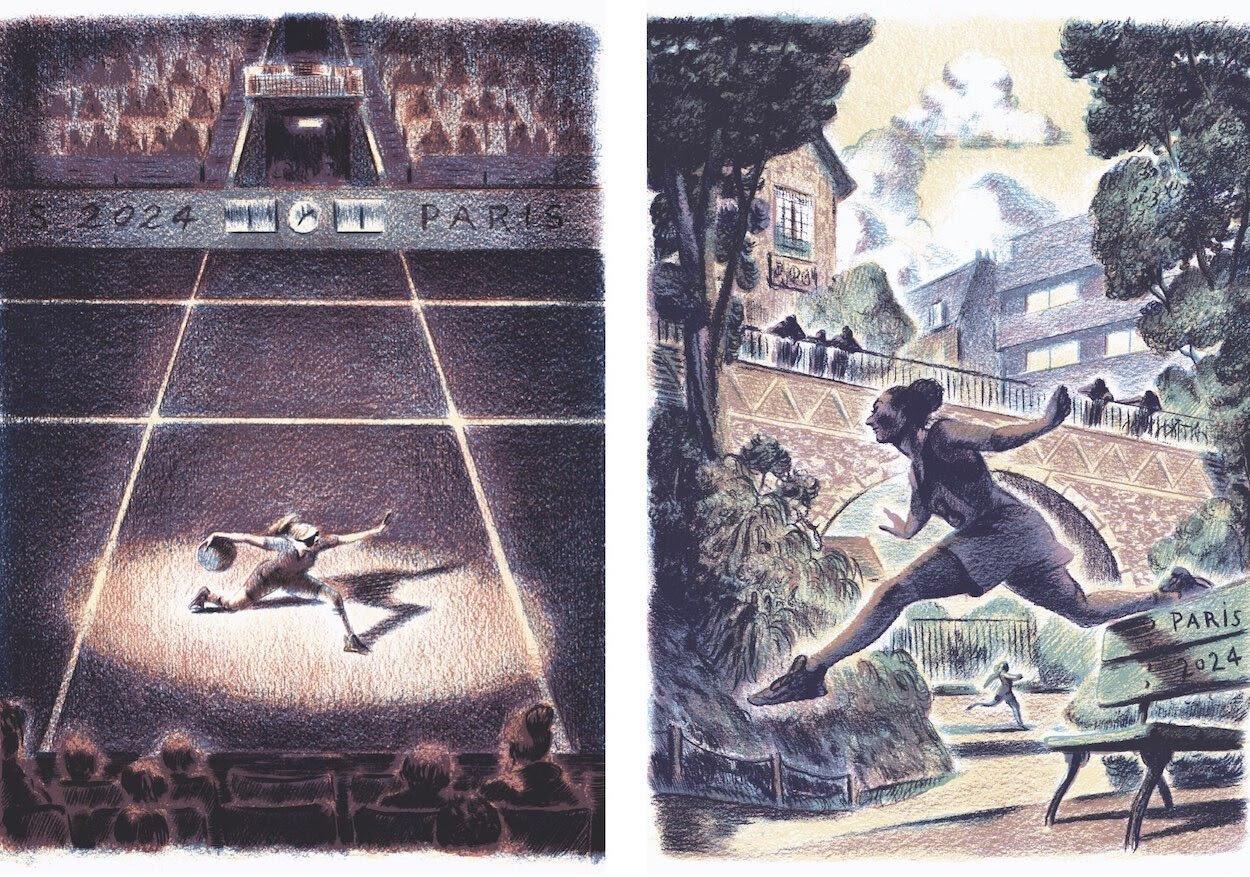A time-honored tradition since Stockholm 1912, Olympic posters have served as a sort of time capsule of their era’s social, political, and artistic traditions. Before the advent of radio and TV, they played a pivotal role in disseminating key information about the Games to the public. The International Olympic Committee and Paris’ Organizing Committee recently debuted posters celebrating next year’s Olympic and Paralympic Games. They arrive as part of the Cultural Olympiad program, which has accompanied each Games since 1992. A jury of officials from the two committees, the French Ministry of Culture, and fellow artists selected the eight participating French and American artists.
They were tasked with creating one poster each for the Olympic and Paralympic games, with one caveat: be approachable to people outside the insular worlds of art and sports. Fanny Michaëlis’s joyful illustrated posters feel like a spiritual successor to the Memphis Group’s blocky shapes, high-contrast colors, and squiggles, while photographer Stéphanie Lacombe captures athletes in disarming moments of vulnerability: thinking, resting, and visualizing the victories they’ve spent their lives chasing. Additional posters by photographer duo Elsa and Johanna and cartoonist Pierre Seinturier drum up enthusiasm for how the Games bring people together. An intrinsic relationship between art and sport—or “muscles and mind,” in the words of Paris 2024 President Pierre de Coubertin—underscores the collection.



